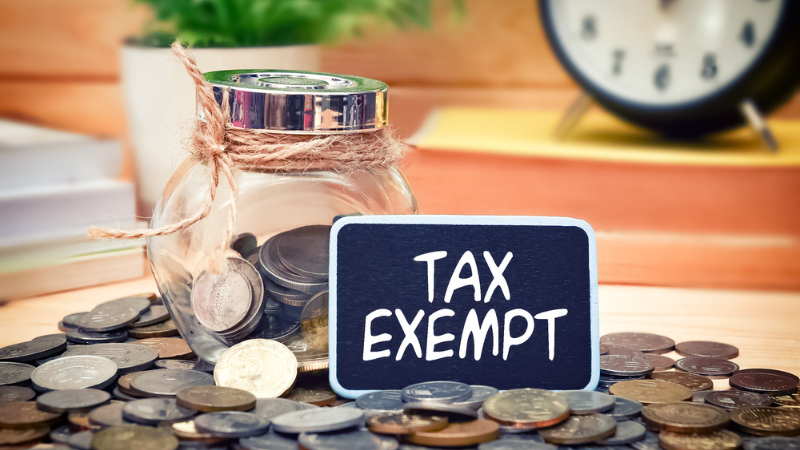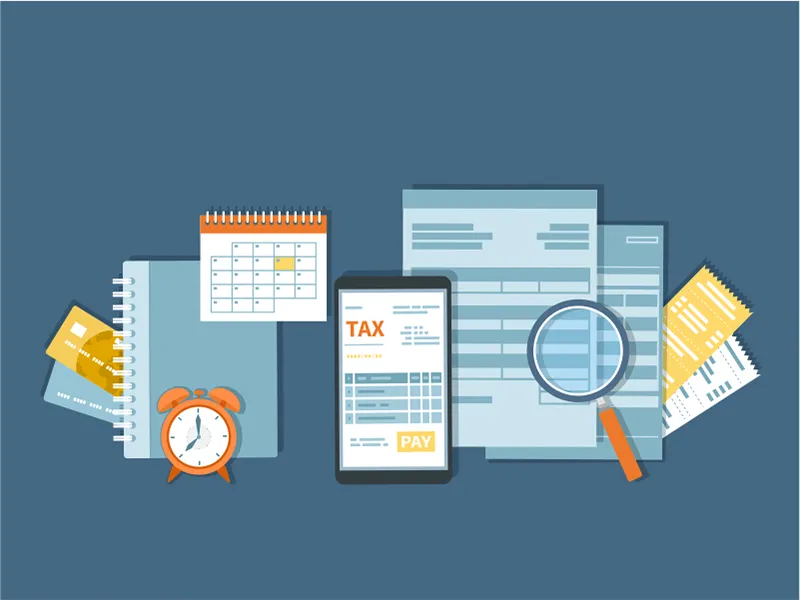
The process of filing Income Tax Returns in India involves assembling a list of documents. While taxpayers usually get sufficient time to arrange the required documents, the procedure of filing ITR can be smooth if one utilises this time and goes through the checklist of documents needed.
Here, we will share a checklist of important documents required for filing an Income Tax Return (ITR) to allow taxpayers to be ready before they actually initiate the filing process.
The documentation requirements for ITR vary depending on the source of income, whether it is from capital gains, salary, business profits, investment earnings, etc. However, few documents are mandatory to be furnished by every taxpayer irrespective of the income source. Let’s begin by looking at the list of commonly required ITR documents.
Commonly required documents – Individual ITR filing
First-time ITR filing documents
Individual taxpayers who are preparing to file their tax returns for the very first time can have a look at the below-mentioned documents that will be required:
- Bank account number, bank name, IFSC details, etc.
- Aadhaar number
- PAN number
- Details of investments made for tax-saving purposes
- Details of any income from other sources
- Details of any deductions availed
- Tax payment Challan in case of advance tax paid or self-assessment
Did you know?
The due date for filing income tax returns for the FY 2021-22 is fast approaching on July 31, 2022.
ITR documents needed for salaried individuals
Salaried individuals preparing to file ITR need to gather a list of documents depending on factors like deductions to be claimed, investments made, etc. Let’s have a look at the list:
| Document | Purpose |
| Salary Certificate or Form 16 | This form contains all information like the salary paid, deductions, and tax deducted at source or TDS of the salaried individual. Where TDS is not applicable in case of job change during the financial year, the employee can seek a salary certificate from the employer. |
| Pension certificate | Pension is considered as income. Therefore, for ITR filing, a pension certificate must be sought from the bank issuing the amount. |
| Joining/referral bonus | In case the employer has offered joining bonus or referral bonus to an employee, the details have to be furnished while filing ITR for taxability assessment. |
| Salary arrears | In case of arrears received during a year, the taxability will increase and the employee must also furnish Form 10E for the same. |
| Final salary settlement | If the individual taxpayer has switched or quit his/her job in a financial year, a calculation of full and final settlement is needed in the form of a statement to determine total tax liability. |
| Gratuity/Leave Encashment | All gratuity receipts or leave encashment-related details (if applicable) must be retained to furnish for tax calculation purposes. |
| Onshore earnings and tax returns | For foreign salary earnings, one can claim tax relief by furnishing Form 67 along with foreign income proofs like salary slips and tax returns filed in a foreign land. |
| PF withdrawal | If any PF amount has been withdrawn during a financial year, the same is taxable and relevant documents must be furnished for taxability purposes. |
| Travel expenses | A refund can be claimed against these while filing returns since they fall under exemptions. Relevant bills must be retained for submission during ITR filing. |
| Rent receipts | HRA can be claimed through rent receipts or rental agreements in case it is not considered by the employer. |
Tax-saving investment documents for ITR
If an individual taxpayer has invested in any of the below-mentioned schemes/policies, relevant documents must be furnished while filing tax returns:
| Investment | Documents |
| Insurance (life/health) | Policy details like amount for claiming exemption or deduction |
| Sukanya Samriddhi Yojana Scheme, ELSS, Tax saving FD, Senior Citizen Saving Scheme, PPF | U/S 80C, these can be claimed as deduction up to Rs 1,50,000. Relevant documents must therefore be kept handy for claiming the deduction. |
| Donation Receipts | These are needed as proof of donation. The donor’s PAN and address are also to be furnished. |
| Repayment of housing/education loan | Certificate of repayment as proof to claim deductions. |
Income from house/property
Many individuals invest in house/property as a long-term investment. However, income from such sources may also attract high taxes unless one claims deductions by furnishing the right documents. Listed here are the key documents to be submitted during ITR for a deduction on income from house property:
| Document | Purpose |
| Property address | Proof of address of property must be furnished for deductions |
| Ownership details | Whether the property is under single ownership or is co-owned, details of the same are required for claiming deductions |
| Possession letter | If one wants to claim deduction on interest paid until possession then it can be claimed in five instalments by furnishing possession letter. |
| Interest certificate | This document should include both principal and interest details from the bank for claiming deductions on home loans. |
| Rent agreement | Form 16 generally contains income from rent on a property. However, it is best to furnish rent agreement details in ITR. |
| Loan processing fees & foreclosure charges | These come under finance charges and can be claimed as deduction under section 24B. |
ITR documents for income from capital gains
It is mandatory to declare both short-term and long-term capital gains in tax returns. Here are the ITR documentation requirements for such income:
| Document | Purpose |
| Purchase and sale deed | Property documents reflecting purchase/sale transaction of property along with stamp duty proof has to be furnished/kept handy. |
| Record of expenses | Any deductions to be claimed on the transfer of a capital asset require proof of expenses including brokerage, transfer fees, commission, etc. for filing ITR. |
| Purchase deed for re-investment | To claim tax exemption, documents related to re-investment of capital gains from the property must be furnished. |
ITR filing tip
Even if you own shares or mutual fund units that are tax exempt, the details of these should be mentioned in the ITR filing.
ITR documents for income from other sources
For income from any other sources, here is the list of commonly required documents for ITR filing:
- Form 26AS – This is a statement that reflects all relevant TDS is deducted and deposited with the IT department.
- Bank passbook/statement – This states the interest earnings on bank savings accounts or FDs that must be declared during ITR filing.
- Lottery winnings – Receipts of lottery or prize winnings have to be submitted.
- Accrued interest – Documents stating interest earnings from NSC and similar other schemes.
- Dividends – Annual dividend income from an Indian company over Rs. 10 lakhs is taxable at 10%. Hence, relevant documents about dividend income above or below this amount must be furnished to ensure an accurate calculation of tax liability.
- Agricultural income – Document stating any income generated from this source, in the form of bank statements or receipts, must be furnished.
- Combined income – In case any dependent income is combined with self, relevant document must be shared declaring such income.
Conclusion
Although the list of documents shared above may not be exhaustive, for filing ITR, these are the most commonly required documents. It is essential for a taxpayer to keep a track of these documents and safeguard them throughout the financial year for a smooth ITR filing process. Keeping these documents handy will ensure that all the necessary information is easily available if needed during ITR filing.
FAQs
In case you miss filing ITR within the due date of July 31, 2022, you can file belated returns by 31st December 2022. It is important to note that delayed filing attracts a penalty of up to Rs. 5,000.
In case you do not furnish requisite documents during ITR filing, you will not be able to avail deductions and exemptions in the applicable categories. This may result in higher tax liability.
Yes, you can submit revised ITR returns within the stipulated time limit as stated under section 139(5) i.e.. This is within 3 months of the completion of the relevant assessment year.
Form 16/ 16A is a certificate of TDS or tax deducted at source. This is issued by the employer on behalf of employees after TDS is applied. These certificates contain details of TDS and is mandatory for employers to issue to taxpayers.


























